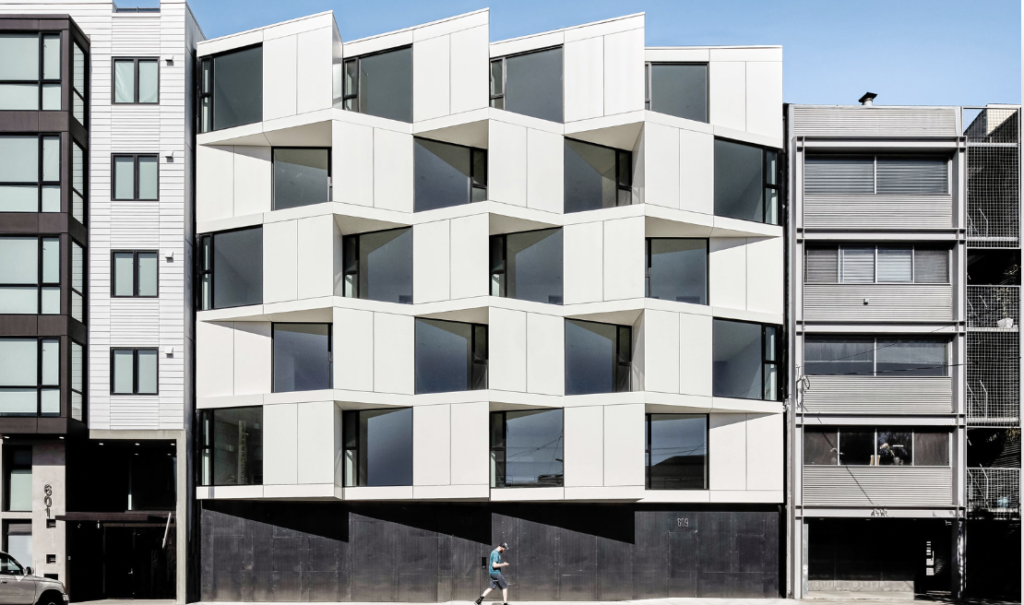Construction in San Francisco is expensive right now, so expensive that a lot of developers are putting a pause on new buildings—not because of Nimbys or red tape, but because it costs too much to build apartments and condos and they can’t sell at a price that would provide adequate return to investors.
That impacts affordable housing development, too: In some cases, it can cost more than $1 million a unit to build a below-market project.
And right now, in Dogpatch, a developer is giving back to the bank a 24-unit project with move-in ready, family-sized units that the city or a nonprofit could likely buy for around $625,000 a unit.
There are no delays here: It’s done. It could be occupied by, say, SFUSD teachers or city workers or so many others who need workforce housing, in a matter of weeks.

It’s for sale, cheap. Is the city interested?
It’s too small to be supportive housing for people who are living on the streets and need intensive services. But it could be “missing middle” social housing.
I mention this relatively small project because it raises a much larger point: The city right now ought to be buying land, buying vacant housing, buying housing that’s in default, because right now it’s relatively cheap.
In the mid-1980s, I was living in a one-bedroom apartment at Hayes and Fillmore, and the owner of the seven-unit building defaulted on his mortgage, and the bank put it on the market for (as I recall) about $400,000. That’s $57,000 a unit. Imagine if then-Mayor Dianne Feinstein and the mostly-conservative supes had put up a very small amount of money to buy it.
SF would have seven units of very-low-income housing forever.
The city is in a market slump right now, which makes it difficult to meet the state’s farcical housing goals. But it’s also an opportunity for San Francisco, and its housing nonprofits, to start land-banking both vacant land and developed buildings that can be had for far less than they were worth a few years ago and may be worth in the future.
Sup. Dean Preston has been talking about land-banking for the past year. The city has money for affordable-housing acquisitions; Prop. C money can go to buy buildings, and while many homeless people will need supportive housing, there are plenty of people living on the streets or at risk for homelessness who don’t need all those services and would be fine in an apartment on Tennessee Street.
The school district is desperate for teachers, in part because teachers can’t afford to live in San Francisco. The city is trying to get more cops to live in town, but they say they can’t afford housing.
Here are 24 units—nine one-bedrooms, 14 two-bedrooms, and one three-bedroom—sitting vacant.
It’s not going to be the only opportunity to present itself to the city. Seems to me we need to take advantage of it, while we can.





